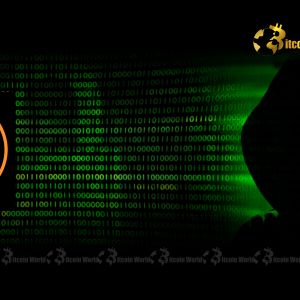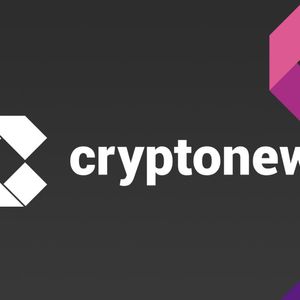The decentralized finance (DeFi) world has once again been shaken by a significant security incident. Reports have surfaced detailing a suspicious transaction spree targeting the ZKSpace proxy contract, resulting in approximately $4 million being siphoned off. This alarming event highlights the persistent vulnerabilities within the blockchain ecosystem and serves as a stark reminder of the critical importance of robust crypto security measures. What Happened to ZKSpace ? Unraveling the $4 Million Attack The alarm bells were first rung by Cyver Alerts, a prominent blockchain security firm, via a post on X (formerly Twitter). Their investigation revealed that an address on the BNB Chain, reportedly funded through the notorious coin mixer Tornado Cash , initiated a series of suspicious transactions. These transactions were specifically aimed at the ZKSpace proxy contract, a critical component often used for upgrading and managing smart contracts. Here’s a breakdown of the reported activity: Initial Funding: An address on the BNB Chain received funds originating from Tornado Cash, a service known for obfuscating transaction origins. Targeted Attack: This address then executed multiple suspicious transactions directly targeting the ZKSpace proxy contract. Fund Movement: Approximately $4 million in various cryptocurrencies was subsequently transferred to the Ethereum network. Liquidation & Laundering: About $1.3 million of these funds, primarily in USDT and USDC stablecoins, was swiftly swapped into Ethereum (ETH). This ETH was then immediately sent to Tornado Cash, further complicating any efforts to trace the funds. Remaining Funds: The balance of the stolen assets was reportedly split and distributed across two different addresses, indicating a deliberate attempt to scatter and hide the illicit gains. Adding to the concern, ZKSpace’s official X account, which would typically be a primary source for updates during such an incident, is currently suspended. This lack of official communication leaves many users and observers in the dark, raising questions about the project’s immediate response and future. The Shadowy Role of Tornado Cash in the Exploit The involvement of Tornado Cash in this exploit is particularly noteworthy. For those unfamiliar, Tornado Cash is a decentralized cryptocurrency mixer that allows users to obscure the origin and destination of their crypto transactions, enhancing privacy. However, this very feature has made it a preferred tool for cybercriminals and hackers looking to launder illicit funds. Its use in this ZKSpace incident, as in many other high-profile hacks, underscores the ongoing challenge of tracking and recovering stolen digital assets. While Tornado Cash aims to offer privacy, its association with numerous exploits and illicit activities has led to significant scrutiny from global regulators, including sanctions from the U.S. Treasury Department. This incident further fuels the debate surrounding privacy-enhancing tools and their potential misuse in the decentralized world. Navigating the Landscape of Crypto Security The ZKSpace incident is a harsh reminder that despite advancements, the DeFi space remains a high-value target for malicious actors. Crypto security is not merely a buzzword; it’s a constant battle. Projects and users alike must remain vigilant. Proxy contracts, while offering flexibility for upgrades, can also introduce new attack vectors if not meticulously secured and audited. The ability to control a contract’s logic through a proxy makes it a prime target for those seeking to exploit vulnerabilities. Challenges in maintaining robust crypto security include: Smart Contract Vulnerabilities: Even well-audited contracts can have unforeseen bugs. Oracles and Price Manipulation: Exploiting external data feeds to manipulate asset prices. Flash Loan Attacks: Borrowing large sums without collateral, executing a rapid attack, and repaying the loan within a single transaction. Private Key Compromises: Direct theft of funds due to compromised user or project keys. Social Engineering & Phishing: Tricking users into revealing sensitive information. Each exploit, including this one, adds to the collective knowledge base, hopefully pushing the industry towards more resilient and secure protocols. Protecting Yourself from Blockchain Scams For individual investors and users, the news of the ZKSpace exploit can be unsettling. However, there are actionable steps you can take to mitigate your risk against blockchain scams and similar attacks: Do Your Due Diligence: Before investing in any DeFi protocol, thoroughly research the project, its team, and its security audits. Look for reputable auditing firms and check their reports. Understand the Risks: DeFi is inherently risky. Never invest more than you can afford to lose. Use Hardware Wallets: For significant holdings, always use a hardware wallet (e.g., Ledger, Trezor) to keep your private keys offline. Be Wary of Unsolicited Links/Offers: Phishing attempts are common. Always double-check URLs and be suspicious of messages promising unrealistic returns. Stay Informed: Follow reputable crypto news sources and security alerts. Knowledge is your best defense. Revoke Permissions: Regularly check and revoke unnecessary token approvals given to dApps you no longer use or trust. For project developers, continuous security audits, bug bounty programs, multi-signature wallets for treasury funds, and transparent communication during incidents are paramount. The Growing Threat of DeFi Exploits : What’s Next? The ZKSpace incident is unfortunately part of a broader trend of DeFi exploits that have plagued the industry, leading to billions of dollars in losses. From flash loan attacks to re-entrancy bugs and oracle manipulations, the attack vectors are constantly evolving. As the DeFi ecosystem continues to grow and innovate, so too do the sophistication and frequency of these malicious acts. What does this mean for the future? We can expect: Enhanced Security Measures: More rigorous audits, formal verification methods, and AI-driven security tools will become standard. Decentralized Insurance: Growth in decentralized insurance protocols offering coverage against smart contract exploits. Regulatory Scrutiny: Increased pressure from regulators to implement stricter KYC/AML measures, particularly around mixers like Tornado Cash, and to hold projects accountable for security lapses. Community Vigilance: A more active and informed community that can identify and report suspicious activities faster. The ZKSpace attack serves as a potent reminder that the journey towards a truly secure and decentralized financial system is ongoing. While the innovation in DeFi is undeniable, it must be matched by an equally robust commitment to security and user protection. The incident underscores the urgent need for continuous vigilance, robust security protocols, and transparent communication from all stakeholders in the crypto space. To learn more about the latest crypto market trends, explore our article on key developments shaping DeFi security in 2024 .



















